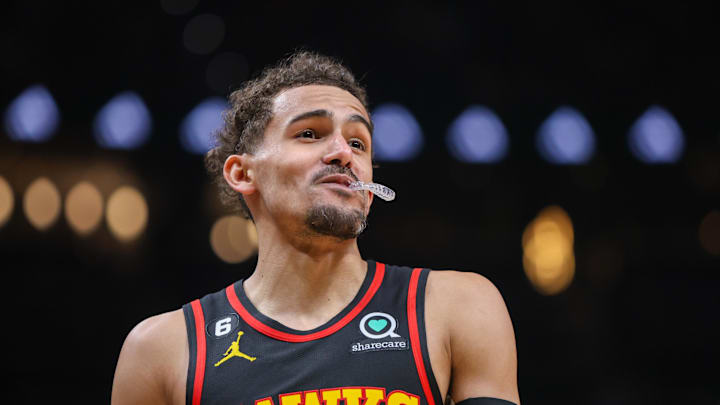With new and heavier luxury tax penalties, ownership may not want to pay for a mediocre Trae Young led team
With the new NBA Collective Bargaining Agreement imposing even stricter luxury tax penalties, the Atlanta Hawks' owners seem uninterested in financing a mediocre NBA team. This summer, they traded John Collins to the Utah Jazz for Rudy Gay and a second-round pick, a move clearly made to reduce both current and future salary obligations.
Currently, the Hawks aren't projected to exceed the luxury tax threshold this season. However, should the team endure another disappointing season, they may contemplate a complete rebuild. With Young owed nearly $160 million over the next four seasons, it raises questions about why they would invest in him if success isn't on the horizon.
Having Trae Young as one max player has already proven to not be enough to be a contending NBA team. Young is on the books alongside De'Andre Hunter, Bogdan Bogdanovic, Dejounte Murray, and a handful of players on rookie contracts through 2025 at least.
That core is not only very average but also expensive. They currently project to be $60 million away from the luxury tax line but Onyeka Okongwu and Saddiq Bey would be up for new contracts at that point, and demand much more than the modest $16 million annually they demand now.
The Hawks could let them walk, but they wouldn't have the money to replace those players via free agency. They could trade them, but for what return and what guarantee that the players they acquire don't bring them to the luxury tax line? And if they're not trading them for better players, is this even a playoff team?
Their hands are tied with their current roster construction, and the only two paths forward that guarantee a lot more flexibility is to either trade all the pieces around Young and get his buy-in on a rebuild, or trade Young himself.
